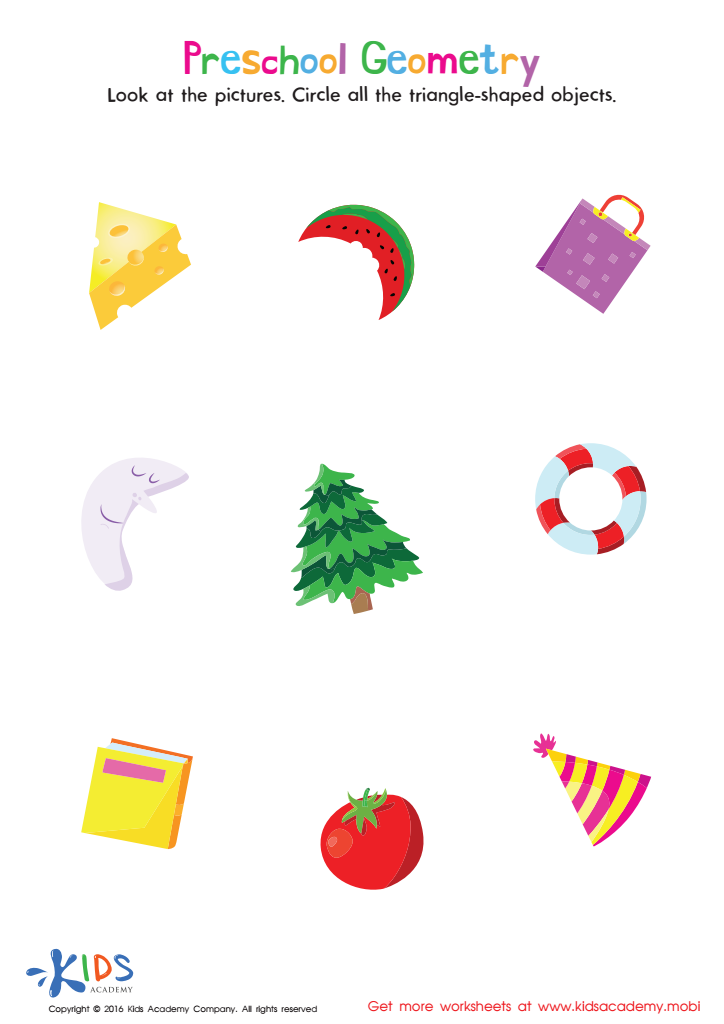Basic geometry understanding Worksheets for Ages 4-5
9 filtered results
-
From - To
Introduce your preschoolers to the world of shapes and spatial understanding with our Basic Geometry Understanding Worksheets tailored for ages 4-5. These engaging worksheets are designed to make learning fun while helping young learners identify and classify shapes like circles, squares, and triangles. Each activity encourages children to recognize geometric patterns, develop fine motor skills, and enhance their cognitive abilities. With colorful illustrations and simple, interactive tasks, your little learners will enjoy exploring basic geometry concepts. Perfect for at-home learning and classroom activities, our worksheets provide a foundation for essential math skills that pave the way for future learning success!
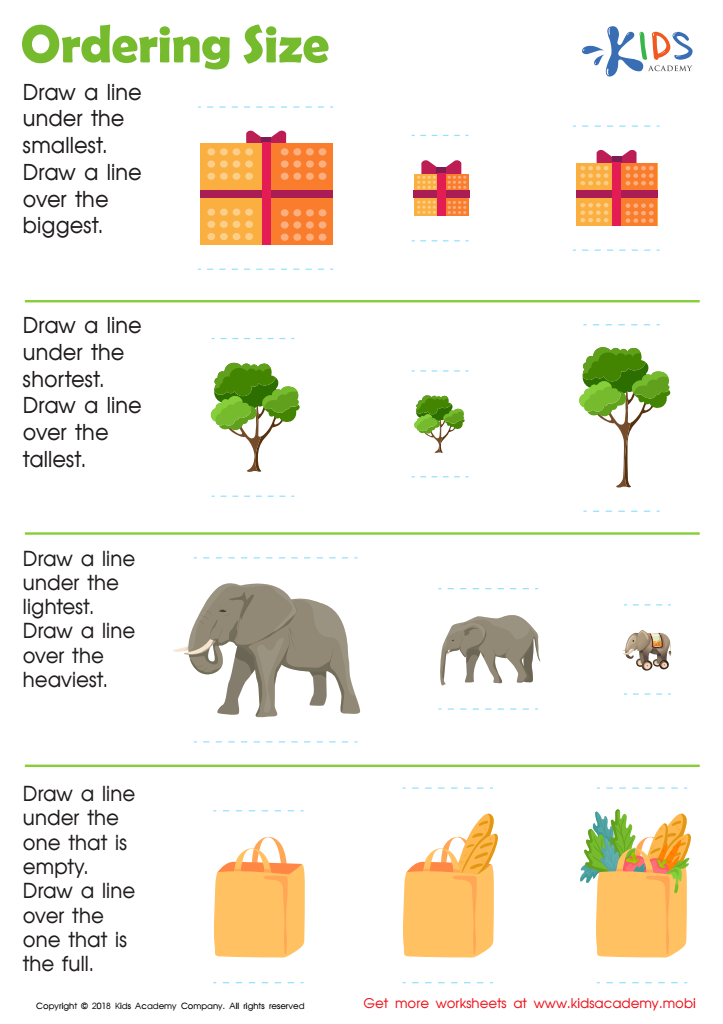

Ordering Size Worksheet
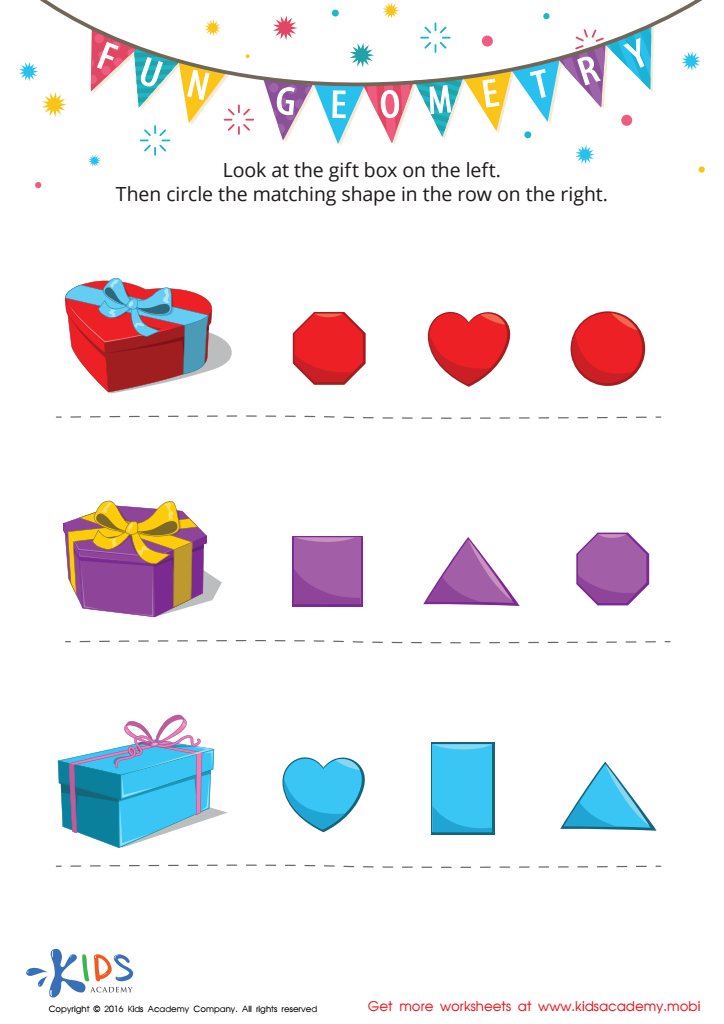

Fun Geometry Worksheet
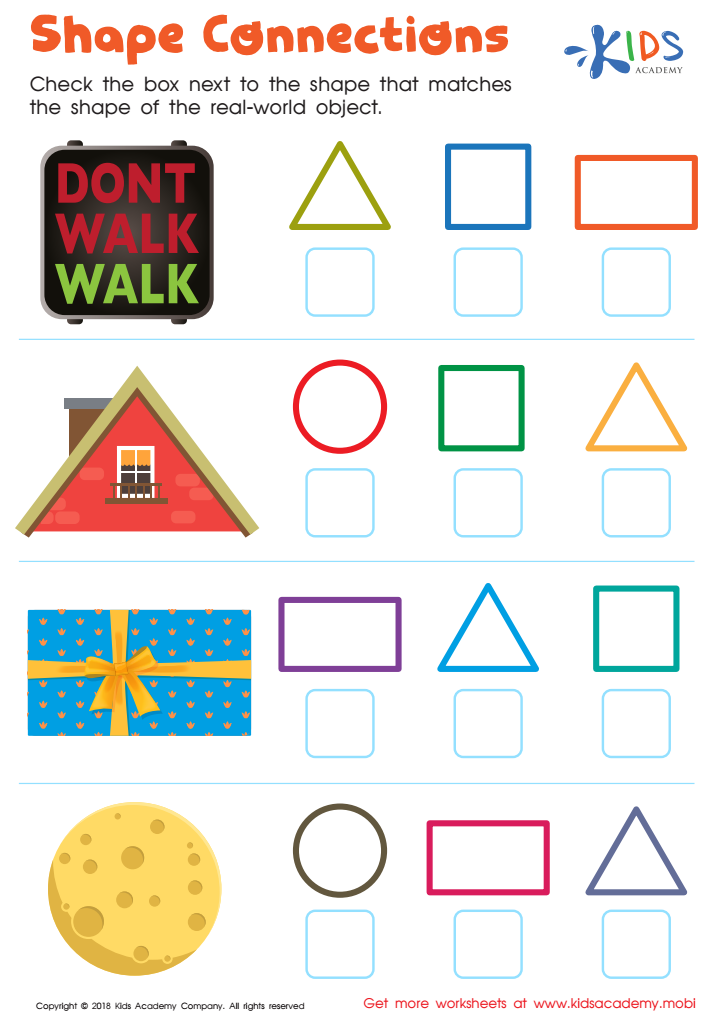

Shape Connections Worksheet
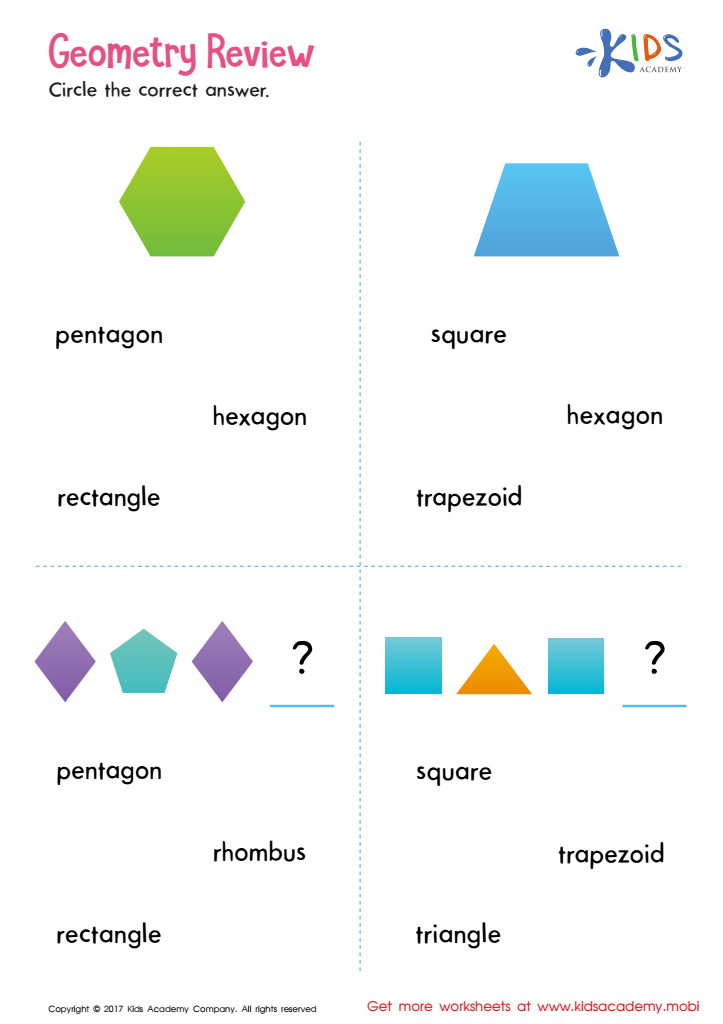

Geometry Review Printable
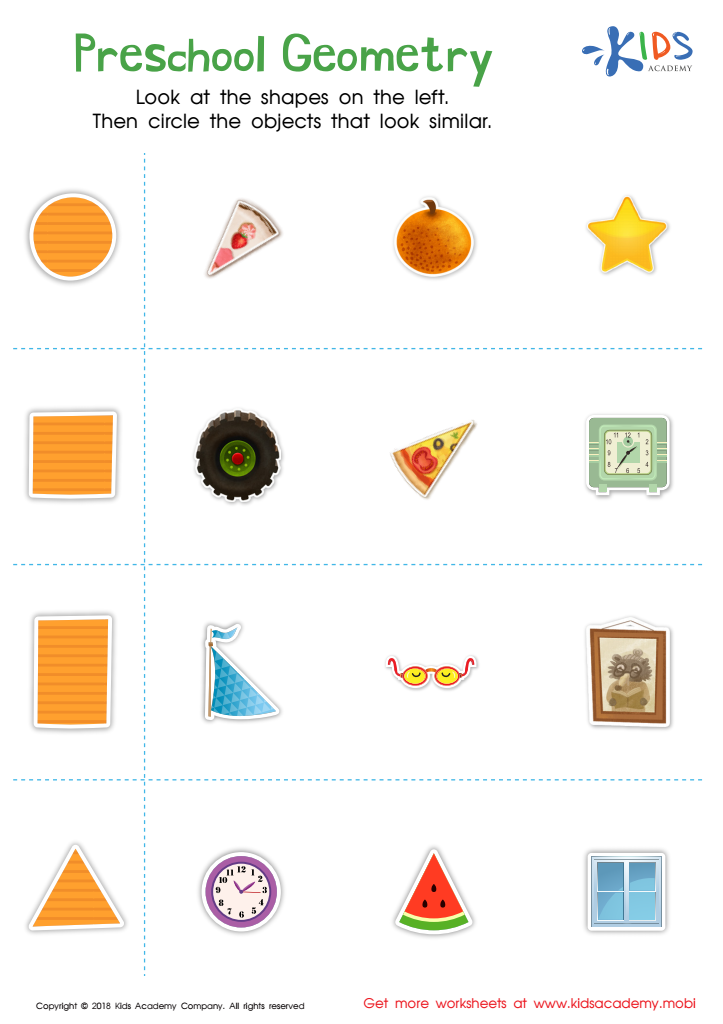

Preschool Geometry Worksheet
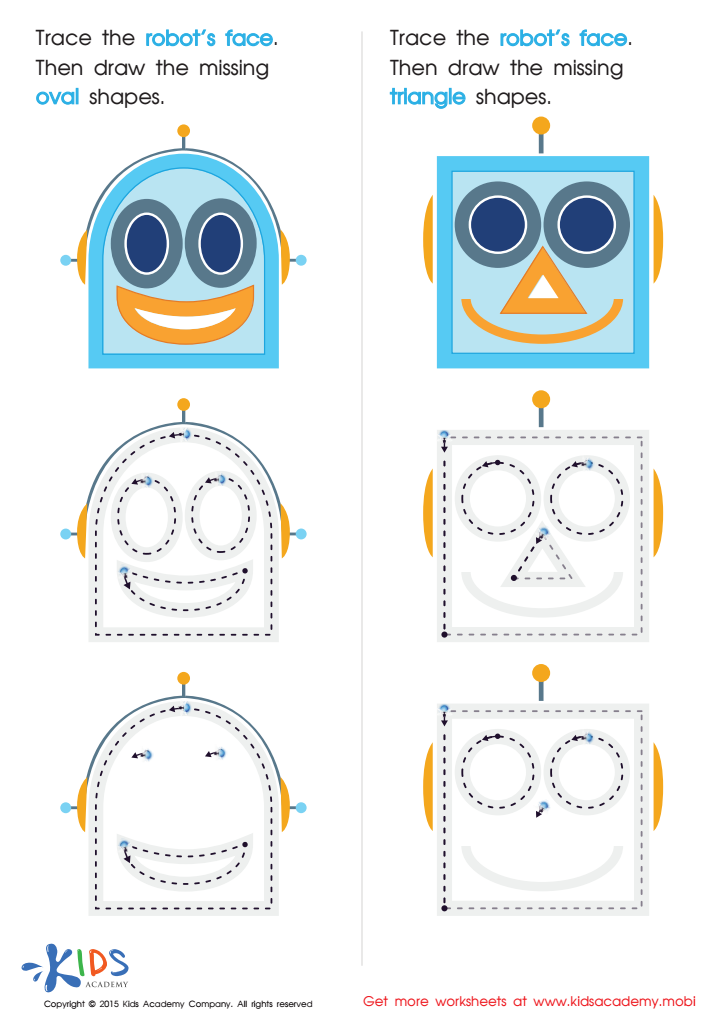

Drawing Ovals And Triangles with Fun Printable
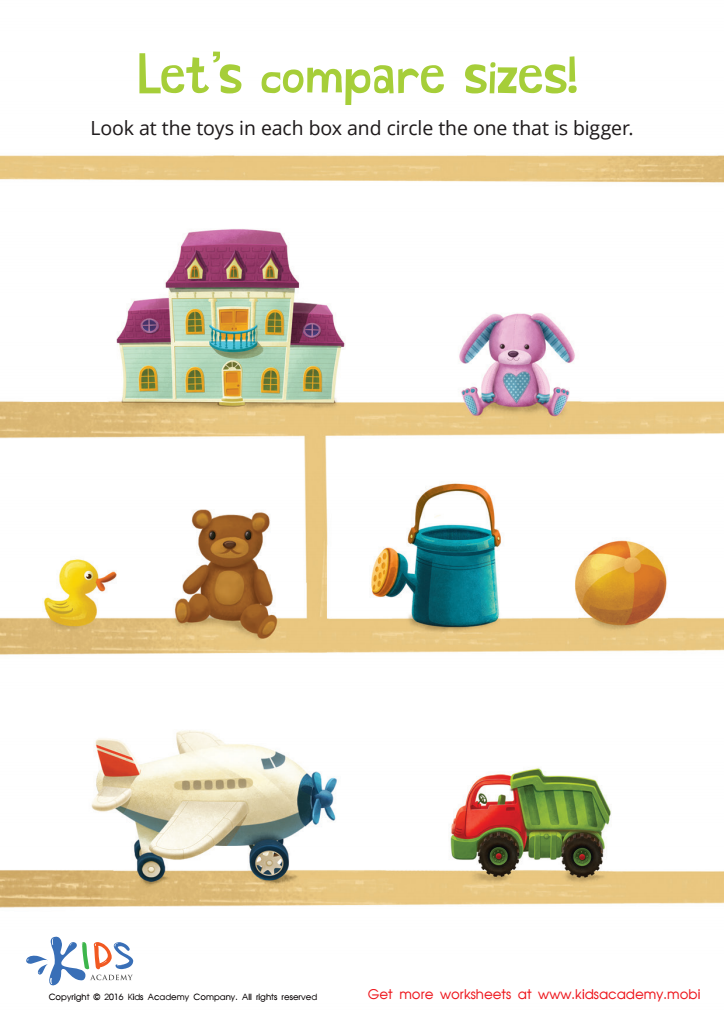

Classifying by Size Sorting Worksheet
Understanding basic geometry is crucial for children aged 4-5 as it lays foundational skills that extend beyond mathematics. At this stage, children naturally explore shapes, sizes, and spatial relationships during play and everyday activities, making geometry a fun and engaging topic. It helps them recognize and name shapes, which enhances their vocabulary and cognitive development.
Geometry also fosters critical thinking, problem-solving, and spatial reasoning, skills that are vital for future learning across subjects. For instance, as children learn to manipulate objects, they begin to grasp concepts like symmetry, congruence, and the properties of different shapes, which can be applied in various contexts such as art, science, and technology.
Moreover, engaging with geometry encourages dramatic play, supports fine motor skills through drawing and building, and enhances concepts of measurement and comparison. Parents and teachers can integrate geometry in daily activities, such as measuring ingredients while cooking or identifying shapes in the environment, making learning seamless and relevant.
Ultimately, investing time in developing a strong understanding of basic geometry during these formative years not only enriches children's academic readiness but also cultivates a lifelong appreciation for learning and exploration in mathematics and beyond.
 Assign to My Students
Assign to My Students

